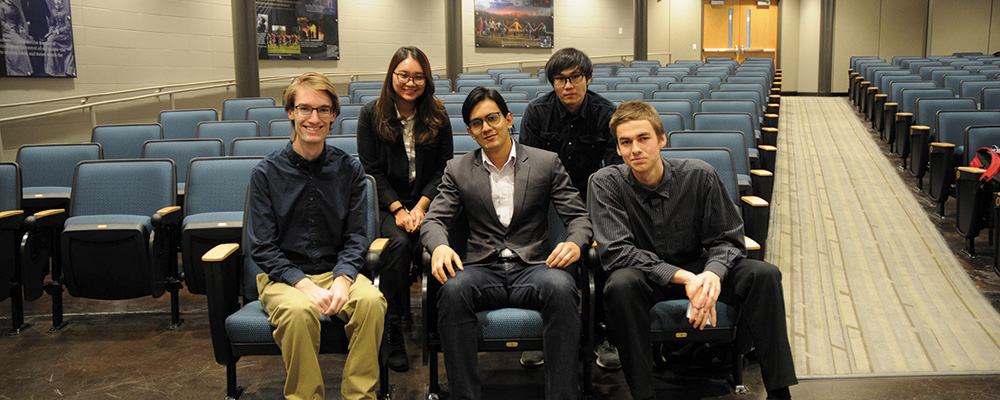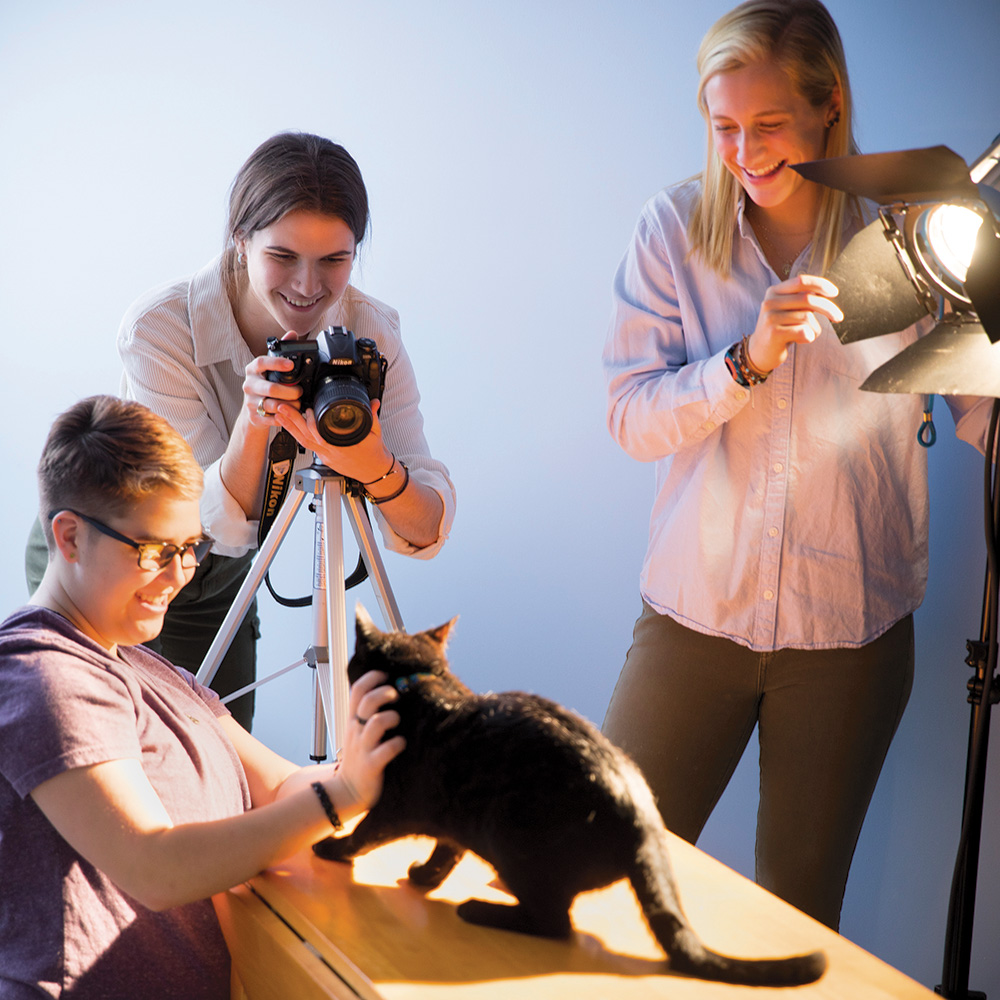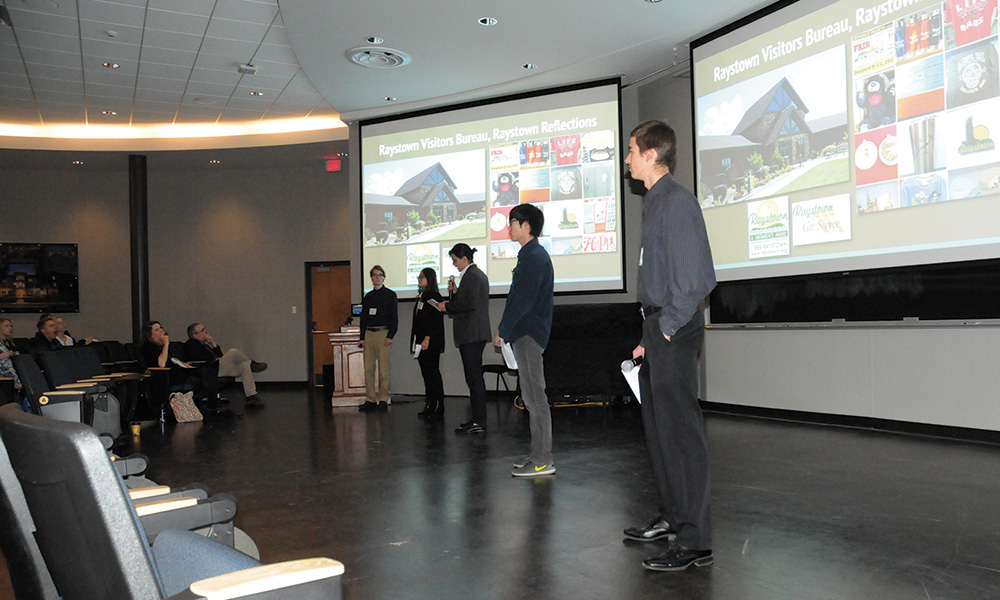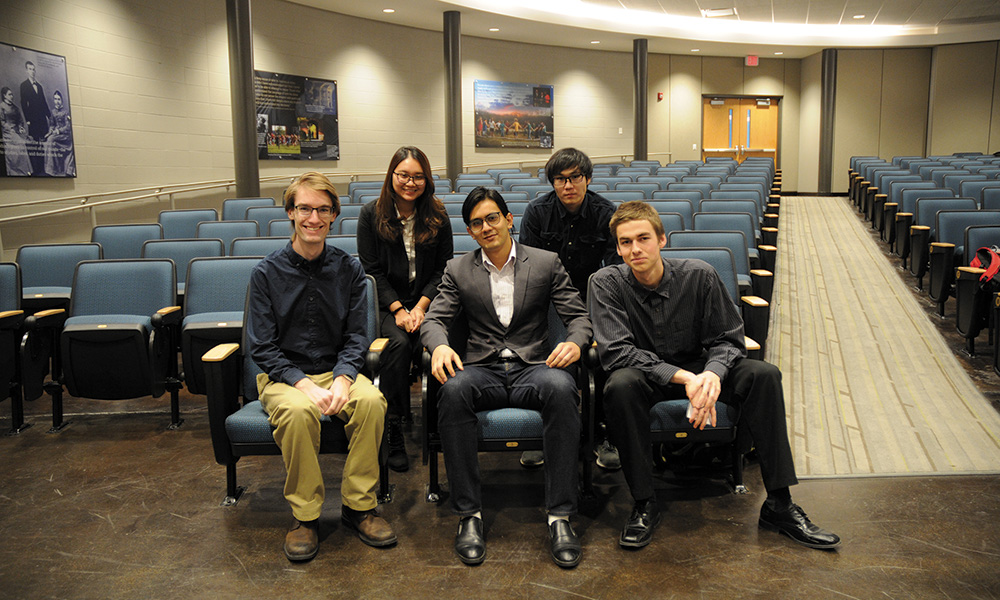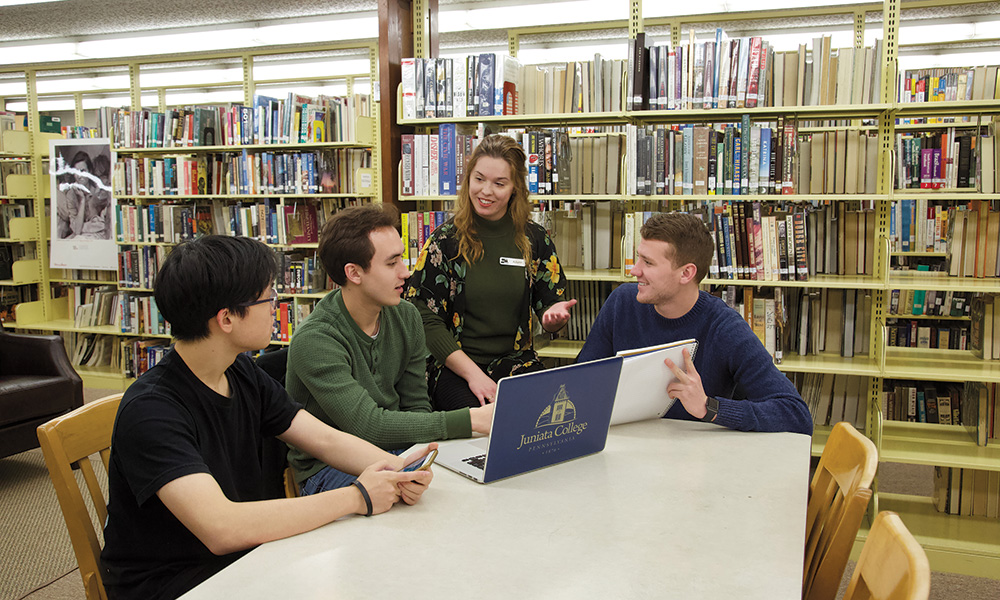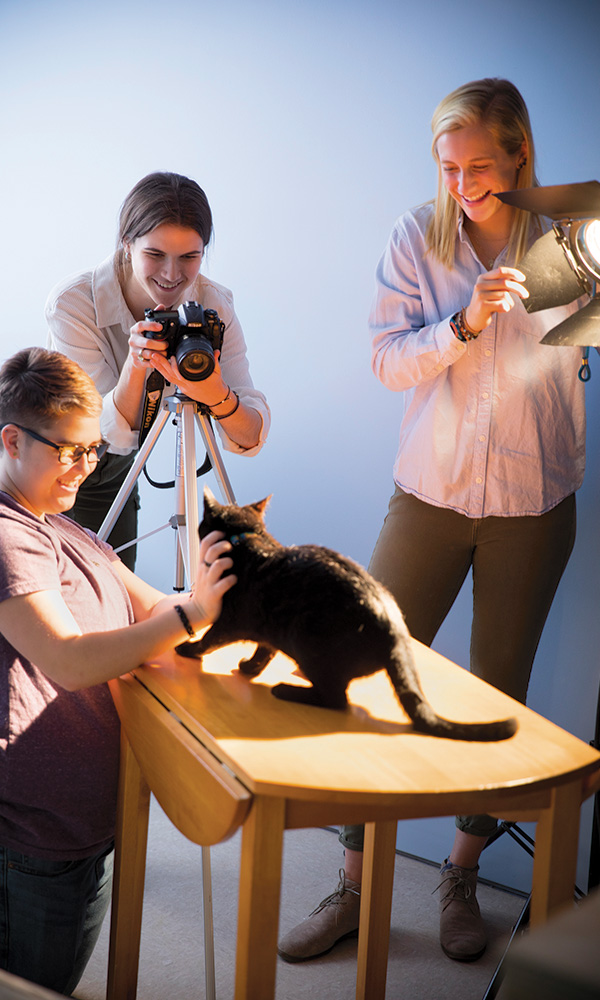Remember word problems? “If John had six apples, and Jane took four apples, how many apples does John have left?” Those problems were straightforward and relatively easy to solve. That’s not the case in the real world, where challenges are likely to require flexibility, creativity, and communication.
Juniata’s distinctiveness is evident as graduates set out into the job field with authentic understanding and skills employers need in their workforce.
Programs like Innovations for Industry (I4I) and community partnerships with Integrated Media Arts (IMA) students, as well as a focus on community-engaged learning, provide opportunities to hone project management skills.
“Time and again, our students come back to us after a job interview and tell us their interviewer only wanted to talk about their I4I project,” says William H. “Bill” Thomas, professor of information technology and computer science. “It gives them that experience to include on their résumé. From a very practical standpoint, that résumé is going to stand out amongst those with no practical experience.”
I4I originated as a capstone course for students studying information technology, who would complete technical projects for community and campus partners in need of help. I4I expanded to include non-technical projects as part of the interdisciplinary colloquia general education requirement.
“We have teams work on a project for one semester. Often, we have too many requests and not enough teams, so sometimes we’ll have a student finish up a project through independent study,” Bill says. “Typically, those with projects find me. My problem is that I don’t have enough teams for good, worthwhile projects. Many of them are from repeat clients we’ve worked with before.”
From crafting a new online marketplace platform for the Huntingdon County Visitors Bureau’s gift shop, Raystown Reflections, to creating a memory lab, a hub for historical preservation of media at the Huntingdon County Library, students are challenged to solve problems and hone skills. Past projects have included bug tracking for NBC Universal’s website and collection of baseline data for Fort Mills EMS in South Carolina.
“A memory lab is a digitized station that converts outdated media into newer up-to-date media,” says Tyler Paul ’21. “We started researching memory labs located at different libraries across the country. With the help of the Centre County Library, we created a budget with all of the materials needed to make this possible.”
The memory lab was a long-term goal for the community library, but it was an aspirational project rather than an immediate one.
“It was something we had been thinking about, but didn’t have the time or manpower to work on. The students got the ball rolling and got to work on it,” says Lisa Erickson, executive director of the Huntingdon County Library. “We would most likely have gotten it going one day, but it would have taken a lot longer.”
Lisa added that the student team brought a great deal of energy as well as a different perspective to the project intended to facilitate the transfer of photographs and audio and video recordings to a digital medium.
“It was something we had been thinking about, but didn’t have the time or manpower to work on. The students got the ball rolling and got to work on it. Lisa Erickson, EXECUTIVE DIRECTOR OF THE HUNTINGDON COUNTY LIBRARY
“Most of them had never seen a VCR, so it was interesting to see that perspective,” she says. “They also helped to write a training manual to help train people to use the memory lab.”
The Raystown Reflections project offered a technical challenge in that online sales had never been offered and an interactive platform would need to be created.
“They do not have an online component for the Raystown Reflections gift shop, so the team is working to develop one,” Bill says. “They have taken two approaches, one is direct marketing for T-shirts and common items. The other is hand-building a website to sell inventory right from the gift shop, tying the website right into QuickBooks. It’s a pretty technical project.”
Building upon work completed to promote work days at the Huntingdon Community Food Garden created by ReInvision Huntingdon, Ryan Gibboney, assistant professor of integrated media arts, worked to design a program to partner with community non-profit agencies.
“Working with a client has been eye-opening. While we might believe that some things would be beneficial for our clients, the secondary effects of our actions might do more damage than good. That’s why it’s very important to put ourselves in the shoes of the client.” Rohan Bandekar ’22 ENTREPRENEURSHIP WITH A SECONDARY EMPHASIS ON INTEGRATED MEDIA ARTS PUNE, INDIA
“The fall of 2017 was our first semester in Kepple Hall. We wanted to do something big to help the students feel really confident,” Ryan says. “It all worked together seamlessly.”
The opportunity for student engagement is a reciprocal partnership with a local community-based nonprofit. Through the partnership, students propose, plan, and complete a real-world design project. The partner and student team collaborate on the completion of design deliverables and a sustainable marketing plan
“These projects are not one semester long. When you engage with a community partner, it becomes a longterm partnership,” says Ryan. “It creates a positive environment. These students create materials and show the partner how to promote them through media platforms. It’s a real-world experience.”Unlike a classroom exercise in which students work through a simulated scenario for a mock client, IMA teams gain experience working with real people, navigating unique challenges, and leave a lasting body of work for their client to use.
“We’ve worked with the Huntingdon Community Center on marketing through print, web, and social media as well as an e-payment platform—that was a huge undertaking,” says Ryan.
IMA student teams also took on a comprehensive rebranding effort for Huntingdon House, an agency that offers services to survivors of domestic violence, and the Huntingdon County Humane Society, a local animal shelter.
"Working with a client has been eye-opening. While we might believe that some things would be beneficial for our clients, the secondary effects of our actions might do more damage than good,” says Rohan Bandekar ’21. “That’s why it’s very important to put ourselves in the shoes of the client, because the goals of the client are more important than our goals.”
The end result of the students’ work for the animal shelter included a contemporary logo, updated website, and an array of marketing materials to further the rescue’s mission.
“We couldn’t be happier to have partnered with the Integrated Media Arts students,” says Huntingdon County Humane Society director Lisa Boland. “The new logo has bright, cheerful colors that showcase our desire to create a positive environment within our shelter setting.”
“The most satisfying part of the project is being put into a real-world situation We are able to work with actual clients and perform meaningful work.” Real World ExperienceTyler Paul, COMPUTER SCIENCE, JOHNSTOWN, PA.
The impacts of their work last well after the students have graduated.
